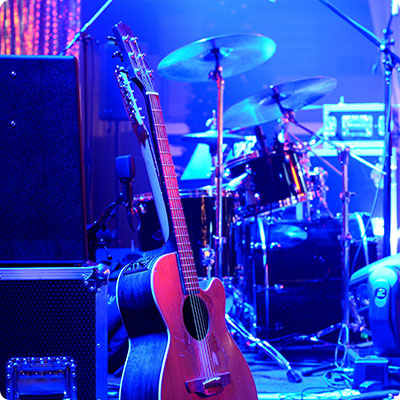A failing education system
Under theFirst Republic, education was for a long time provided in the national language and this practice largely slowed down the learning of the French language, even though it was the official language. Since 1985, schooling has again been in French for children between the ages of 7 and 10. But after a few decades of real progress in literacy and schooling, the progress has been largely slowed down since the mid-2010s. Repeated political and social crises and successive health crises have led to major disruptions in the school life of students since 2013. There have been few "normal" school years, leading to a very significant deterioration in the level of students and many dropouts. Today, we are witnessing a rampant privatization of the system with the multiplication of paying school groups, especially in large cities, while at the same time, public schools are surviving as best they can with overcrowded classes, teachers who are poorly trained or discredited, unsuitable and ill-equipped premises... The education system is in crisis and the corruption, which is also corroding it, is not helping to lift it up. Under these conditions, it is not surprising that the illiteracy rate remains at a very high level, around 60%. The gross enrollment rate in primary school is relatively stable, but with significant disparities. In some villages, this rate is almost zero because of the distance to schools or the absence of teachers. If you add to this the inadequacy of the university system to the needs of the labor market, with a university that is known for training more unemployed people than future managers of the country, you have an unflattering panorama of a failing system that gives the full measure of the challenges to be met.
Strong growth in emigration
In Guinea, as elsewhere in West Africa, the age-old tradition is cracking every day. It is strongly challenged by the young generations, eager for a new reality, and who find themselves confronted with the will of their elders. The lack of perspectives, the absence of freedom, difficult living conditions associated with the recent and massive access to Internet and social networks accelerate the phenomenon. This situation leads more and more often to the flight of young people to the city and its illusions. Towards the city... or towards the foreign country, still considered as the El Dorado. But what other choice could they consider in the face of mass unemployment, in a country where the future remains uncertain in the short term? Even those who manage to complete higher education have no guarantee of finding stable work in the formal economy. Most, especially if they do not have a well placed parent to help them, "muddle through" as they say here and join the ever growing ranks of the informal sector. If today young Guineans are among the most numerous asylum seekers in France, it is unfortunately not by chance. Despite the cost and risks (known to all) of clandestine crossings, more and more of them are trying their luck in order to offer themselves the hope of a better future.
Health, the forgotten one
With the Ebola crisis declared in 2014, the failures and inadequacies of the health system have been very widely highlighted, a reality that the populations are well aware of but are forced to live with. The health system suffers from a lack of quality infrastructure and equipment, and a lack of available and well-trained health care personnel
Here health has become a business. Health care providers seem to have lost some of their humanity. If you want to be treated, you have to start by paying. No money, no care, even if you are in danger of dying. More and more, as in the education sector, health care is being privatized. Private clinics are multiplying. It is not uncommon to see a member of the medical profession holding a position in the public administration and working in a private clinic or practice.
Faced with this situation, Guineans only come to hospitals as a last resort and often too late. They still largely prefer to resort to healers and other marabouts or to self-medication based on products bought on the markets and whose quality is often doubtful. The few improvements and investments made in recent years (increased health budget, construction of laboratories and health centers, renovation of the Donka hospital, etc.) are certainly a step forward, but there is still so much to be done to provide access to quality health care for the entire population. A good indicator of a significant improvement could be the day when the country's leaders and executives will be treated locally and not abroad as at present.
Excision, an enduring practice
Despite a law prohibiting it and penalties of up to five years in prison, Guinea is among the most practiced countries in the world. It is estimated that 97% of Guinean women have undergone this mutilation.
However, there is a real awareness that it is a real danger for women. Campaigns for the abolition of this practice have multiplied in recent years, promoted by local and foreign NGOs. Former excisers have even become "repentant" and are now campaigning for an end to the practice. The Club des jeunes filles leader de Guinée (an activist association created in 2016 to defend the rights of women and children) is also very active in raising awareness about this issue. Unfortunately, all of them are confronted in their approach with a social and cultural wall built for generations and which is difficult to overturn, especially among rural populations with little education
But each small step is a progress: each excisor who renounces her practices, each mother who forbids this practice on her daughter(s) are all victories that should one day allow these practices from another age to disappear. Too often today, young girls still die as a result of female genital mutilation in Guinea and for many Guineans, this is no longer tolerable.
Polygamy is only half recognized
Although polygamy has been prohibited by law since 1968, it is still a very common practice. Faced with the weight of tradition and the Muslim religion, which allows up to four wives for a man, this law has in fact never been applied.
A new law, wishing to take into account this state of affairs, was passed by the Assembly in 2018 and paved the way for the legalization of this practice by giving the possibility of choosing one or the other matrimonial regime, specifying that "if the man does not subscribe to one of the options, the marriage is presumed to be placed under the regime of polygamy. However, opposition from a number of female deputies led the then President to reverse the original text and finally pass a law recognizing monogamy as the general regime of marriage and polygamy as an exception. This is just one example of the debates on the subject in Guinean society.
In practice, polygamous households are commonplace. The man is then the guarantor of the proper functioning of the household and is expected to meet his many obligations. He must give each wife equal attention to avoid jealousy and must also ensure that he provides for his entire family, which is often large. Every day, after his work day, he must take care of one of his wives with care and love. Moreover, he has to arbitrate the disputes that never fail to arise between the different wives.
In short, today, and for more convenience, the younger generation prefers monogamy and uses "less official" practices with discretion.
Forced marriage, arranged marriage
Marriage here is above all a family affair. Before uniting two beings, marriage unites two families. It is difficult, if not impossible, for a young Guinean to get married without the agreement and blessing of his parents. Very often, it is the parents who propose a future spouse to their child. Some accept because they ask for it, others submit when their parents feel that it is time for them to start a family. But it is still not uncommon today for young people barely out of their teens to be under so much pressure that they end up agreeing to a marriage against their will and even though they have not reached the legal age of 18. It remains almost inconceivable for a large majority of families that one of their children could remain single, and even more so for a young girl. It is a question of honor. Better a forced marriage than a birth out of wedlock, which is often very badly experienced. It does not matter if the Civil Code adopted in 2019 establishes the mutual consent of the spouses as a fundamental principle and if the Penal Code expresses the formal prohibition of forced marriage. Social pressure is still often stronger than the laws, and customary marriage is a way to circumvent them. The road to eliminating these practices will be long, but this does not scare Guinean women's rights activists who, like the Club des jeunes filles leaders de Guinée, fight daily for the respect of their rights.














